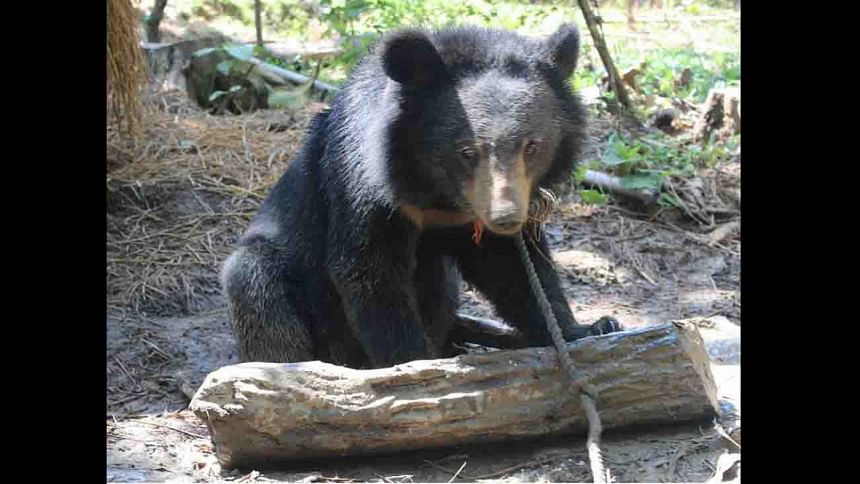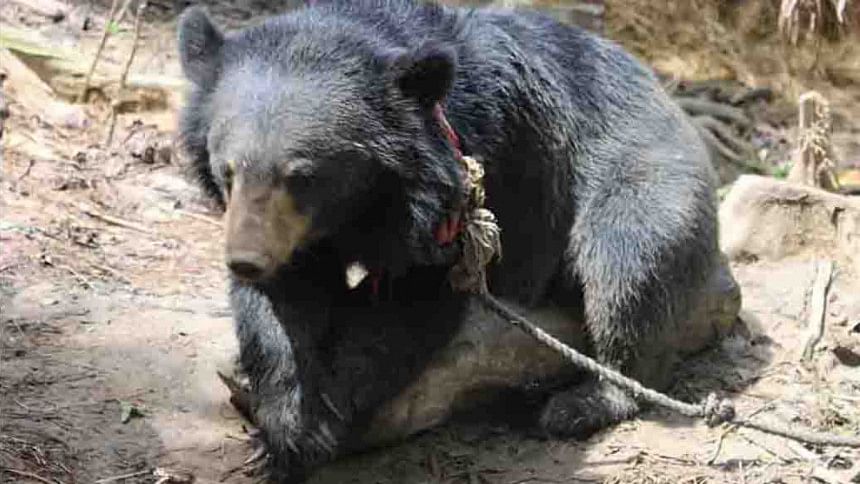Rare black bear waiting for freedom

Caught by an indigenous man in Baghaichhari area of Rangamati, a rare black bear is waiting for help to be freed.
The forest department is trying to rescue the bear, which is globally vulnerable and endangered in Bangladesh.
It was caught along with its mother and a sibling eight months ago. Its mother was killed and the other cub died.
The captor has reared the cub for eight months.

Since it is hand reared, the bear now cannot go back to the forest. It will have to be kept at any safari park, according to experts.
Asiatic Black Bears have recently been confined to regions in Central and Southern Asia with a handful of populations also found as far north as Russia. Although they have a relatively wide distribution throughout Southeast Asia as well including Myanmar, Vietnam, Laos, Cambodia and Thailand, they are today absent from Malaysia, possibly due to the overlap of these territories with that of the Sun Bear.
Their exact habitats depend on the geographical region where they are found although Asiatic Black Bears prefer deciduous forests and brushland at lower altitudes. The encroachment of human activity on these lowland regions from increasing levels of agriculture and growing human settlements has resulted in the remaining populations of Asiatic Black Bears being pushed into small and isolated pockets of vegetation at higher altitudes.

 For all latest news, follow The Daily Star's Google News channel.
For all latest news, follow The Daily Star's Google News channel. 



Comments